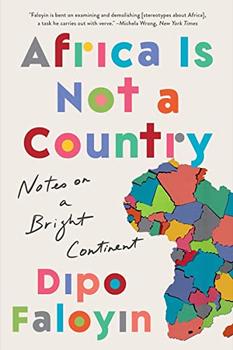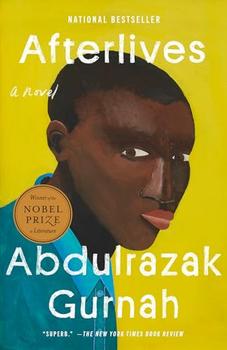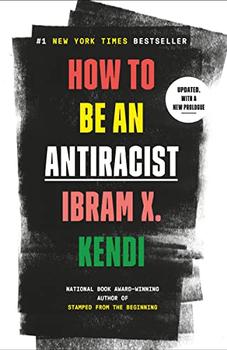Summary | Excerpt | Reviews | Beyond the book | Read-Alikes | Genres & Themes | Author Bio

Notes on a Bright Continent
by Dipo FaloyinIt does not seem possible that people in the 21st century could believe the continent of Africa is a single country. But Dipo Faloyin, journalist and senior editor at VICE, begs to differ in Africa Is Not a Country: Notes on a Bright Continent. This expert collection of reflections pushes back — often humorously — on the various, maddening ways the wider world treats Africa and speaks of it as a single country, "devoid of nuance and cursed to be forever plagued by deprivation."
Africa is a continent with 54 nations, more than 2,000 languages, and home to 1.4 billion people. According to Faloyin, however, for too long the continent has been thought of as a "buzzword for poverty and strife…where nothing but misery grows" or as "one big safari park." These lazy assumptions and perceptions make easy targets for the author, who begins his portrait of modern Africa with a healthy infusion of historical context.
"A map is a divided thing," he says, made more so by the meeting of 14 European and Eurasian nations under a large map of Africa in 1884, scrambling after pieces of the resource-rich continent. Dubbed the Berlin Conference, this gathering of "White Men in Khaki" laid out the "principle of effective occupation" that began the mad European rush to confiscate large swathes of the African interior, without the consent of the Indigenous ethnic groups already there. Colonization attempts in Africa were made long before this meeting, but Faloyin describes this event as pivotal to explaining a prevailing attitude toward the continent: "That Africa's fate should not be left to Africans has been the West's go-to strategy in the region for almost every one of the 137 years since" that meeting.
Just as disastrous as the oppressive colonization and landgrabs perpetrated against generations of Africans were the arbitrary and "straight line" borders the Europeans created, "geometrical shapes that bear no relation to the topography, culture or languages of the land they apportion." Why is this important? Faloyin provides keen insight supported by hard data:
"Only 30 per cent of all borders in the world are in Africa, yet nearly 60 per cent of all territorial disputes that have made it to the International Court of Justice come from the continent."
The drawing of these uninformed borders across Africa resulted in the splitting up of hundreds of ethnic groups among multiple countries. In addition to the psychological violence of having one's land forcibly drawn and quartered were the physical and material tensions created within these made-up states, Faloyin contends. This "created nations born of a melding of adversaries," and "far from creating bonds of unity, the colonial borders forced groups to compete for treasured prizes, not only for personal enrichment but to survive."
With the march of democracy across Africa during the widespread independence movements of the 1950s and '60s, Faloyin tackles one of the more stubborn tropes, that of the "violent African dictator…searching for villages to pillage, children to abduct and blood diamonds to harvest." Admitting that "the continent has tangled with its fair share of authoritarians," he surgically debunks the offensive and pernicious notion that Africans cannot govern themselves and that the continent is "somehow predisposed to evil despotism." The reality, he says, is far more intricately layered than people realize, requiring a fundamental understanding that Africa "is a rich mosaic of experience, of diverse communities and histories, and not a singular monolith of predetermined destinies."
In addition to the weightier sections pertaining to colonialism, dictatorships and looted artifacts, Faloyin unleashes his acerbic wit on the various representations of Africa in media and popular culture, taking sharp jabs at the "white savior" complexes and imagery he finds everywhere in movies, documentaries, and now, social media (see Beyond the Book). In particular, he makes the reader laugh (and at times, squirm) at the ridiculously self-congratulatory feel-good projects of the 1980s, or as he terms this era, "the golden age of charity campaigns." Songs like "We Are the World" and "Do They Know It's Christmas?" sung by a star-studded assortment of artists, raised money to help fund famine relief efforts, but the lyrics of these insipid songs were often inaccurate and insulting. With "Do They Know It's Christmas?" Faloyin critiques the lyrics:
"For the record: it does snow in parts of Africa; water runs in streams and rivers and emerges from kitchen taps as needed; crops grow, flourish and are exported to help feed the rest of the world; and people exchange gifts at Christmas that range far beyond staying alive."
Joys and revelations abound in Africa Is Not a Country, but perhaps the most satisfying aspect is Faloyin's ability to weave together Africa's painful past with its infinite promise for a brighter future — on its own terms. Highlighting the more positive developments, such as the "significant rise in the number of elected female legislators and women selected for high-ranking government positions" throughout Africa, Faloyin circles back around to the power of individual human beings to be effective in their communities, through grassroots political activism but also through art, literature and music. He calls for the world to engage more genuinely with the continent:
"Engage with all of it: each language and climate; each political and social framework; each nation trying to form its identity specifically. Engage with the majestic game animals, and communities bursting with kin like mine whose idea of the wild is a small town still to be touched by a reliable Wi-Fi network."
In the pages of Faloyin's tender and (ir)reverent paean to Africa, the reader will find a very bright continent, indeed.
![]() This review was originally published in The BookBrowse Review in October 2022, and has been updated for the
November 2023 edition.
Click here to go to this issue.
This review was originally published in The BookBrowse Review in October 2022, and has been updated for the
November 2023 edition.
Click here to go to this issue.

If you liked Africa Is Not a Country, try these:

by Abdulrazak Gurnah
Published 2023
From the winner of the 2021 Nobel Prize in Literature, a sweeping, multi-generational saga of displacement, loss, and love, set against the brutal colonization of East Africa.

by Ibram X. Kendi
Published 2023
From the National Book Award–winning author of Stamped from the Beginning comes a bracingly original approach to understanding and uprooting racism and inequality in our society - and in ourselves.
Your guide toexceptional books
BookBrowse seeks out and recommends the best in contemporary fiction and nonfiction—books that not only engage and entertain but also deepen our understanding of ourselves and the world around us.